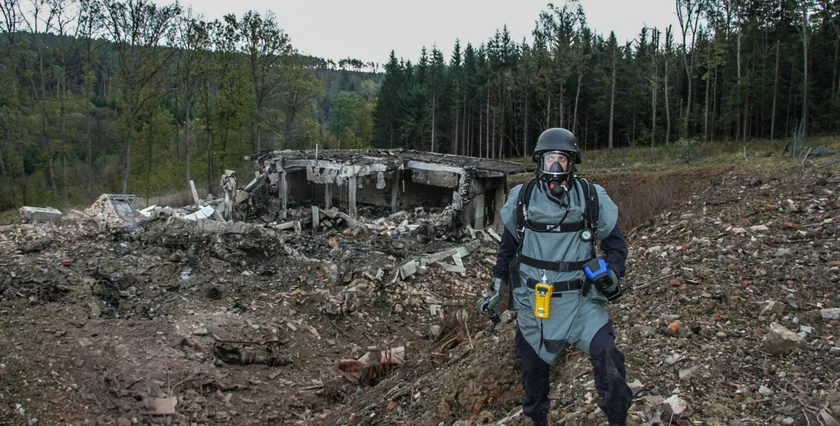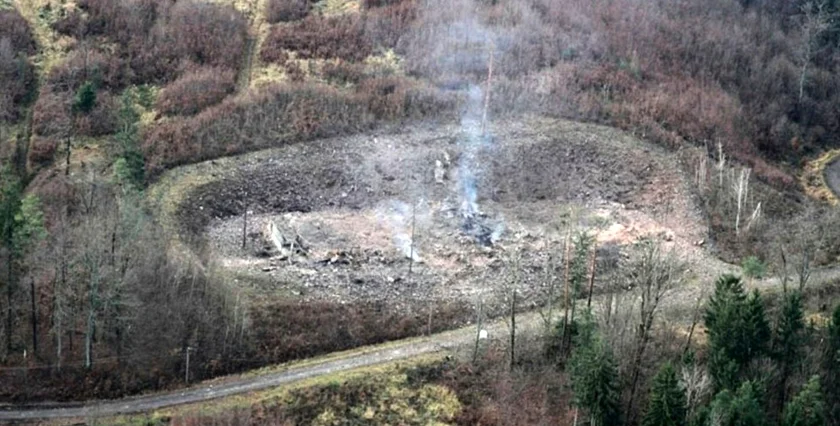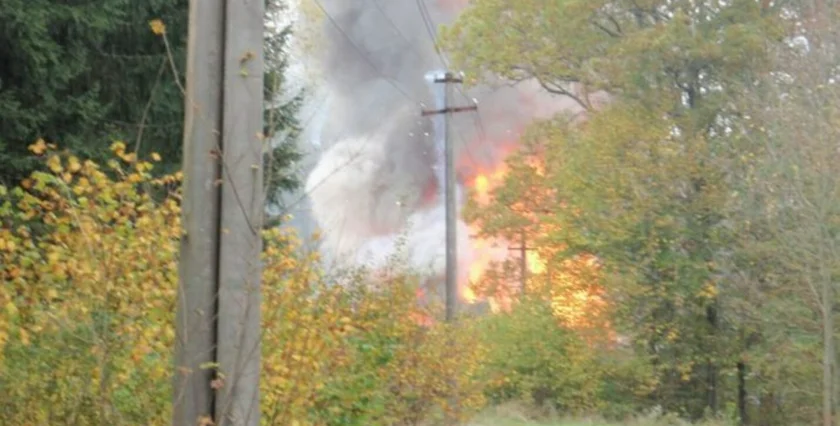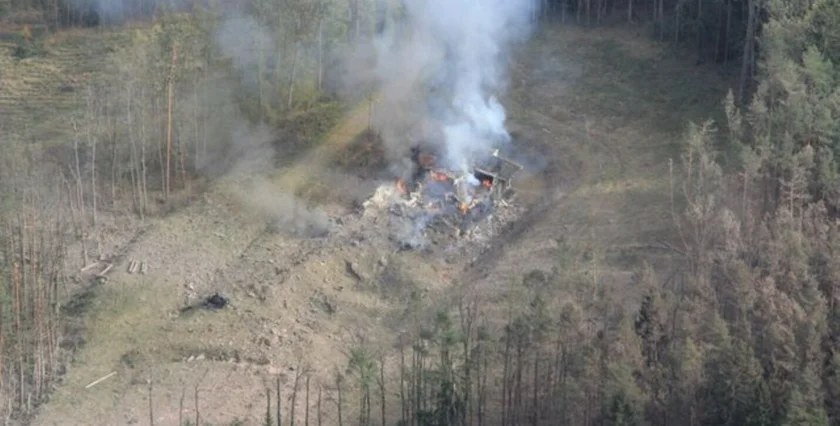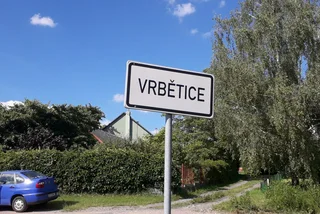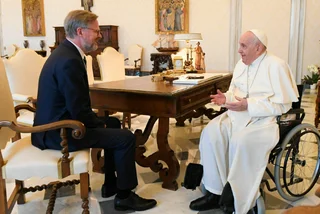Independent news website The Insider has reported that Russian spies carried out the 2014 Vrbětice attacks in Czechia, which resulted in the explosion of two government-run ammunition warehouses and killed two Czech citizens. These conclusions are from a Czech police investigation definitively ruling that Russian intelligence members were responsible for the blasts.
What were the Vrbětice blasts?
On Oct. 16, 2014, a large ammunition warehouse in the Czech village of Vrbětice, close to the Slovak border, suddenly exploded. This killed two nearby workers in the blasts, and the warehouse’s 50 tons of ammunition were thrown up to 800 meters away from the center of the explosion, leading to the evacuation of the area for several days.
PARTNER ARTICLE
A second blast occurred in early December of that same year; attackers targeted a warehouse with 13 tons of explosives. Total damages due to both attacks were estimated at over CZK 1 billion.
What was the aftermath?
The attacks worsened an already fractious relationship between Czechia and Russia.
A 2021 investigation by the government of then Prime Minister Andrej Babiš presented “clear evidence” linking Russian military intelligence agency (GRU) officers to the blast. In return, the Czech government expelled 18 Russian diplomats over the blasts. Russia, in return, ousted 20 Czech diplomats from Russia
What do Czech authorities say?
The Czech National Centre Against Organized Crime (NCOZ) said this Monday it has clear evidence that GRU members were behind the attack.
According to NCOZ director Jiří Mazánek, GRU agents came to the Czech Republic to carry out the explosions and left immediately afterward. NCOZ says Russian intelligence also had detailed information about the stored weapons and ammunition in Vrbětice, the items' movement, and their end user.
The police speculate that Russia targeted the large ammunition warehouse due to Czechia supplying and selling ammunition to Ukraine; earlier in 2014, Russia had invaded and annexed the Ukrainian territory of Crimea, which is still under occupation.
Who was behind the attacks?
Citing an NCOZ investigation, The Insider writes that GRU agents Alexander Mishkin and Anatoliy Chepiga were behind the explosions. These names may be recognizable – in 2018, they attempted to murder former Russian military intelligence officer Sergei Skripal (who became a double agent working against Russia) in the UK, gaining international media attention.
Mishkin and Chepiga received assistance from long-term spies, Elena and Nikolai Šapošnikov, who sought refugee status in Czechia in 1993. For years, the married couple gathered information on military supplies and helped Russian intelligence officers carry out sabotage operations while spending time in Czechia, The Insider writes.
The Šapošnikovs, who obtained Czech citizenship at the turn of the millennium – but not without several applications filled with lies and forgeries that initially had been rejected – arranged for Mishkin and Chepiga to gain access to two different warehouses in Vrbětice.
The married couple did this with the help of the owner of the Imex Group company that co-ran the warehouses, Petr Bernatík Jr, a former secret agent of the Czechoslovak State Security (ŠtB).
Mishkin and Chepiga used fake names and falsified passports to enter the premises of the ammunition warehouses on the grounds of a standard visit, installed explosive devices, and then left Czechia.

What do Czech leaders say?
Following the NCOZ findings, Prime Minister Petr Fiala said Russian President Vladimir Putin's regime has “long been waging a hybrid war” against Czechia, as the 2014 attacks evidence. The attacks justify Czechia’s strict foreign policy against Russia, according to Fiala.
President Petr Pavel considers it correct that the police have clearly identified the culprit. Russia, he said, had attacked Czechia's sovereignty in the most brutal way since the 1968 invasion.
"Russia committed a terrorist attack in our country in which two innocent people died. That is why we care so much about the security of our country, and we will continue to do so," Chamber of Deputies Speaker Markéta Pekarová Adamová wrote on social media site X.
Interior Minister Vít Rakušan said Monday: “The bomb attack by Russian agents on ammunition warehouses in Vrbětice was an act of state terrorism. An attack on us all.” He added there was “no doubt” who was behind the attacks.
What happens now?
Czech authorities have now shelved the case investigating the origins of the near-decade-old explosions on account of it being definite that Russia was behind the attacks.
Czechia will continue its diplomatic efforts to seek compensation for the 2014 blasts, according to the Foreign Ministry. Official criminal proceedings against the GRU perpetrators, however, are still impossible. This is because NCOZ says Russia is refusing to cooperate with Czech police on bringing those responsible to justice.
Still, Czech criminal investigators have set up an investigation team to analyze the origins of the 2014 attacks further, cooperating also with the UK, Ukraine, and the U.S.













 Reading time: 4 minutes
Reading time: 4 minutes 


